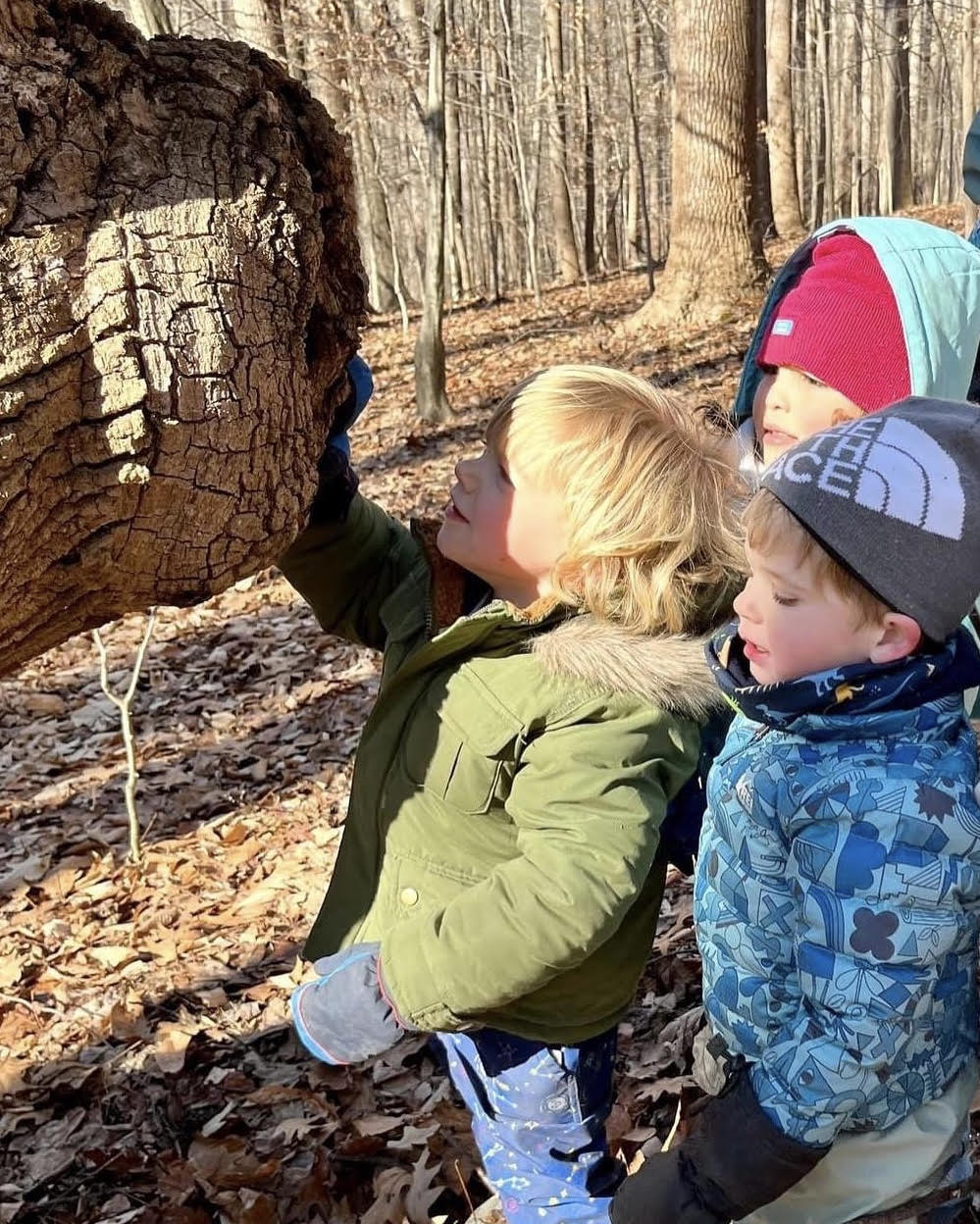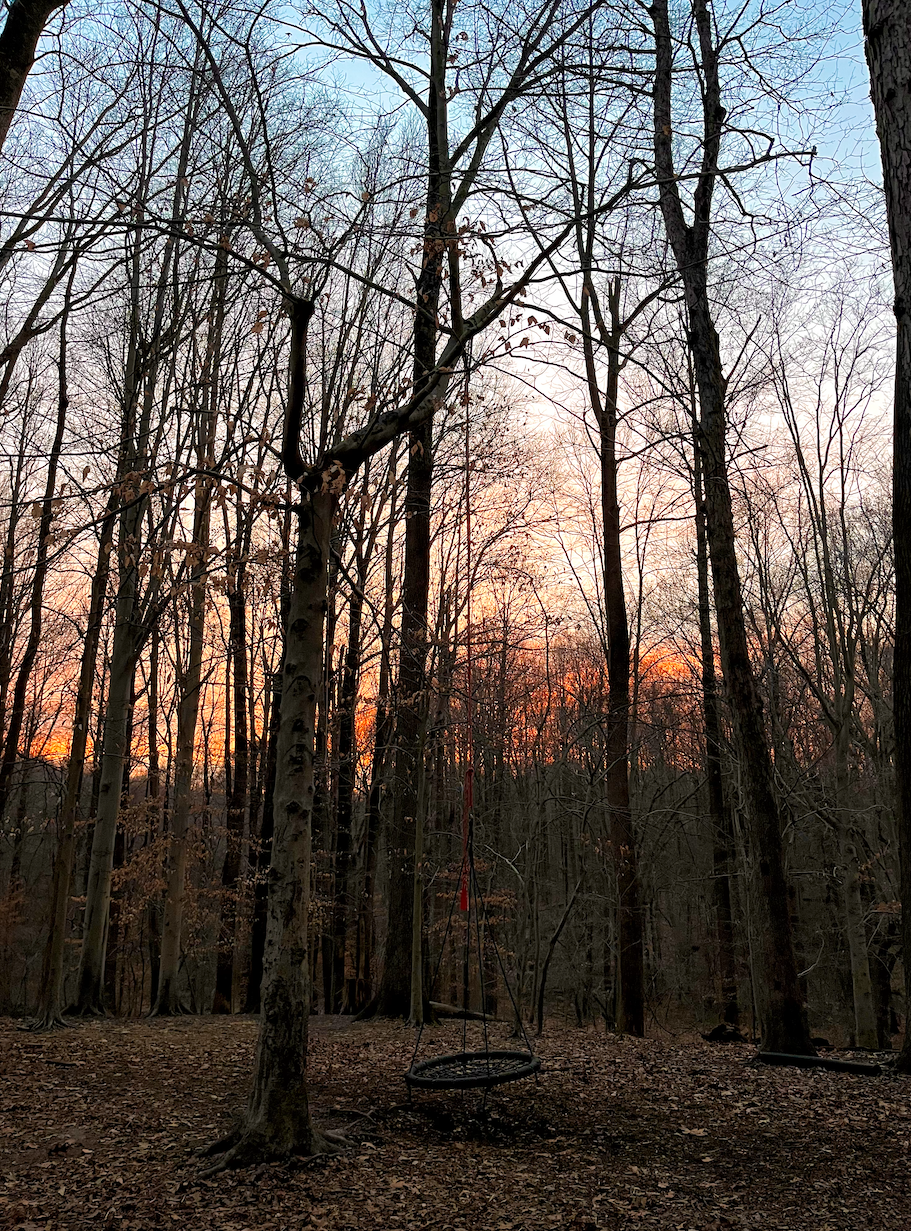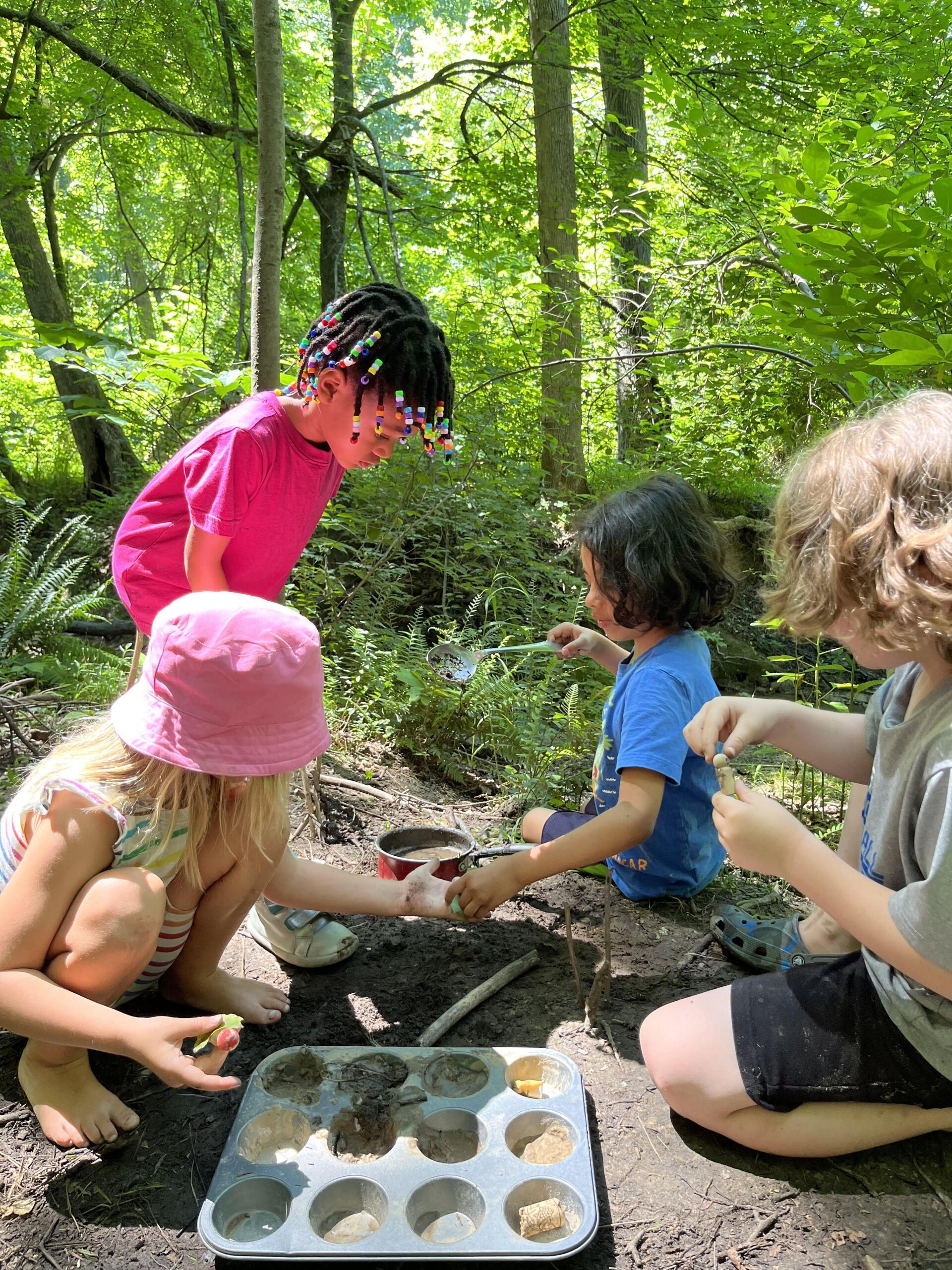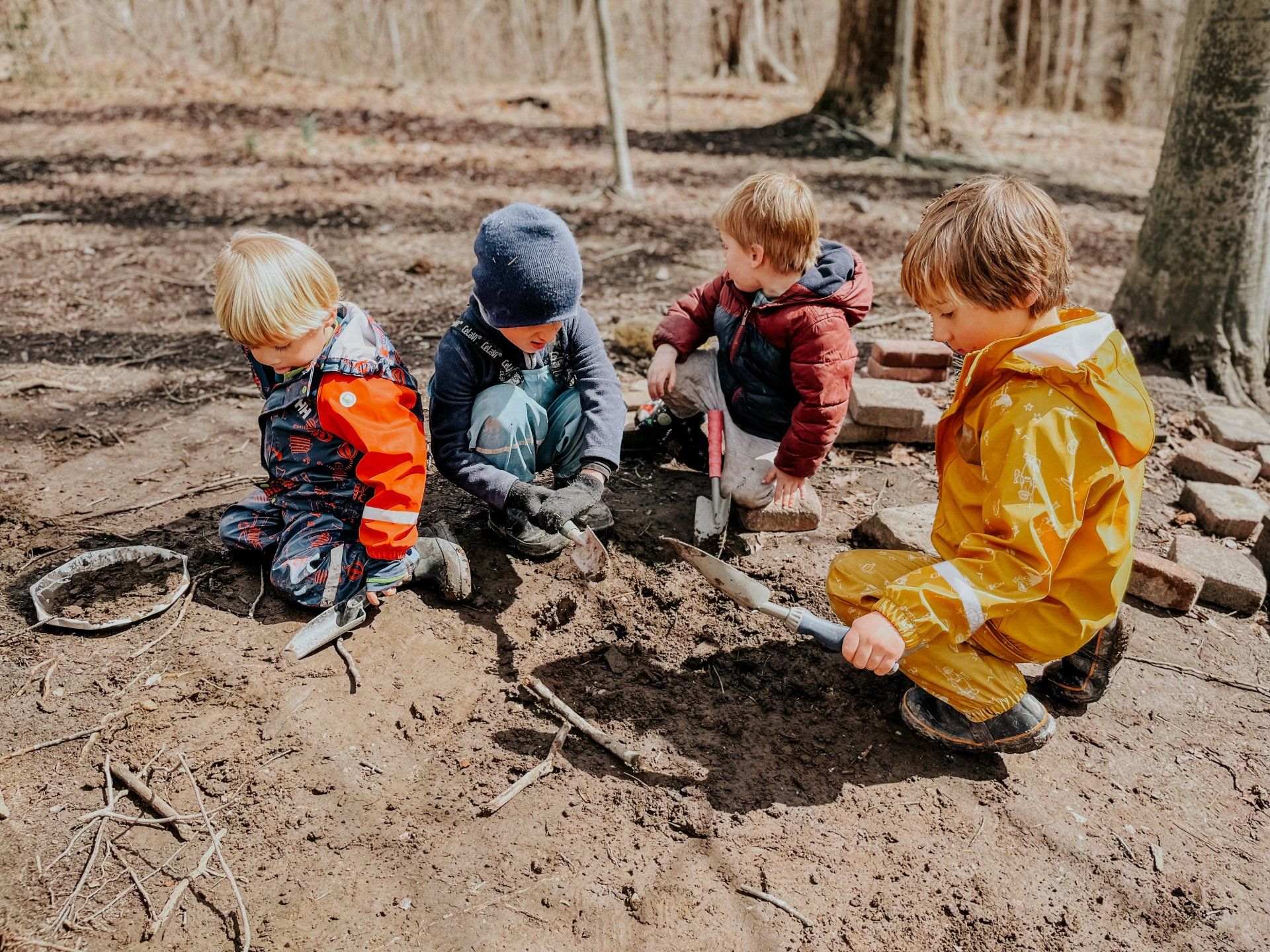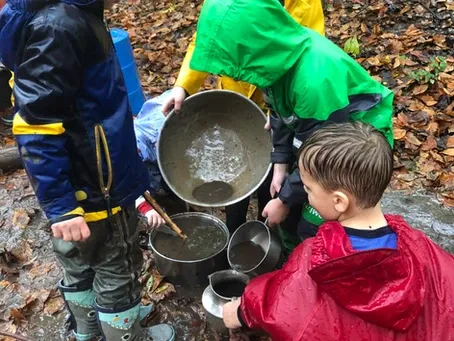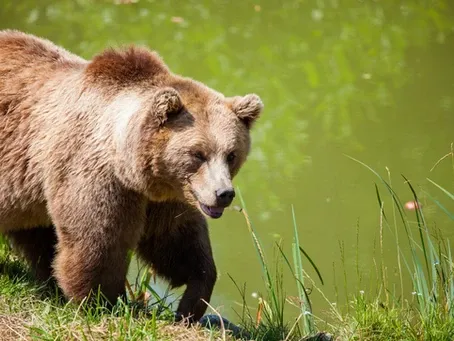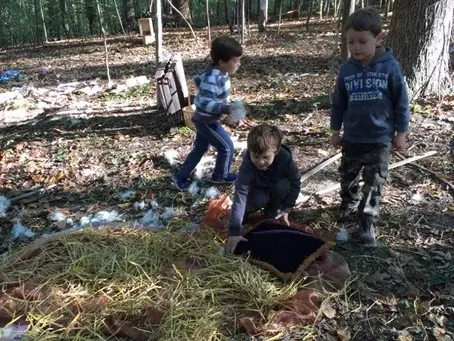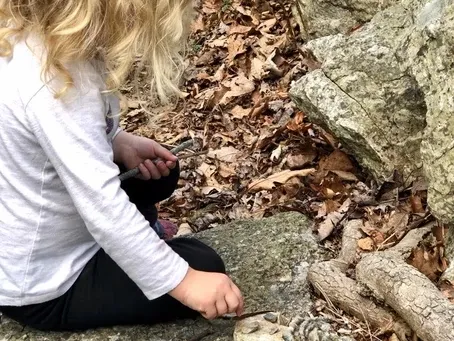A recent article in the Wall Street Journal highlights the importance of a longer, slower childhood. Nature can greatly contribute to a longer, slower childhood and positively influence all areas of child development.
What does this mean?
- Children need enriching and "varied" positive experiences for their brains to remain malleable for longer periods of time.
- Children learn there are many possibilities and often more than one answer to a question when they spend significant time in nature.
- The forest gives space for children to follow their curiosity and wonder. Nature is constantly changing, encouraging children to discover and play in novel ways.
It’s all about the brain! The architecture of the brain includes and ongoing process of neuron activity!
- The early years are the most active time period for neural connections to be formed.
- Connections are early in the brain build the foundation for later connections.
- In summary, the early childhood experiences will shape how well the brain functions through adulthood.
What about children with frequent negative experiences? When children experience many negative or stressful experiences, their brain develops at a rapid pace, which is not optimal for continued learning and flexibility.
What must be considered to positively influence the young developing brain?
- Varied nurturing environments
- Areas where children feel safe to take healthy risks, feel supported, and can thrive
- Connections to others, nature and self
- The foundation for successful later years
- Unstructured play opportunities
- Opportunities to practice leadership, social skills, and flexibility
Having your child enrolled in our programs is one way you are enhancing their development and laying the groundwork for social-emotional competence, necessary for success! Investing in the early years of childhood for quality experiences will lead to better long-term outcomes in adulthood! NPR recently published an article that sparked our attention titled, "A top researcher says it's time to rethink our entire approach to preschool" and notes how children in structured settings are expected to be quiet, listen to the teachers, and are expected to absorb information. In the forest, children are encouraged to communicate, ask questions, and feel empowered to engage in child-led learning and play.
Interestingly, we learn that families of wealth are not choosing these state-wide structured preschools as often. They are choosing programs that focus on: art, music, movement, and NATURE. The research focuses in on a statewide preschool in Tennessee, where children were shown to perform poorly academically in the long-term compared to the children who did not attend. Additionally, the author notes how PLAY is the primary way in which children learn, and need the opportunity speak openly.
At River’s Edge, we believe play is the best way children learn, and is the right of the child! When we take this unstructured play away and primarily have our children indoors for academic learning, they are not taking appropriate risks, learning how to control their bodies, using essential executive functioning and problem-solving skills. Movement has been shown to facilitate regulation and calm for children who are experiencing dysregulation. How can children reset their mind and bodies in a setting where they are being told what to do constantly and not given freedom to explore?
Researchers are not the only ones noting the need for quality preschools and nature based learning.
State leaders are beginning to recognize the importance of connecting our communities and young children with nature.
Maryland House Bill 376 titled “Outdoor Preschool License Pilot Program” was examined on January 19th.
- The bill includes launching a pilot program for licensing of outdoor preschools
- River’s Edge will likely be chosen to become one of the pilot school locations
- River’s Edge Forest Play will be receiving a visit early April from the Maryland State Senator, Sarah Elfreth
- The pilot program will aim to investigate benefits of outdoor, nature-based classrooms, and expand accessibility to high-quality learning child care programs
Sources: Center on the Developing Child, Harvard University
Alison Gopnik, The Wall Street Journal
Anya Kamenetz, NPR: Education


